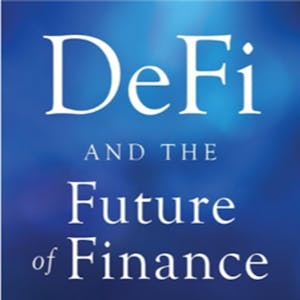Decentralized Finance (DeFi): The Future of Finance
About this Specialization
DeFi and the Future of Finance is a four course learning experience. DeFi or Decentralized Finance is a new technology whereby users interact as peers with algorithms or smart contracts rather than through traditional intermediaries such as banks, brokerages or insurance companies. The technology has the potential to transform finance as we know it. It solves key problems in traditional finance such as lack of inclusion, inefficiency, opacity, centralized control and lack of interoperability.\\n\\nThe first course, DeFi Infrastructure, focuses on the historical evolution of decentralized finance as well as the problems that DeFi solves. The second course, DeFi Primitives, deals with mechanics, supply and ownership, and loans and swaps. The third course, DeFi Deep Dive, explores the leading protocols including MakerDAO, Compound, Aave, Uniswap and dYdX. The fourth course, DeFi Risks and Opportunities, analyzes the key risks including smart contract risk, governance risk, scaling as well as regulatory issues. The final part of the course sketches a vision of finance in the future including the winners and the losers.Created by: Duke University

Related Online Courses
The course will explore the tone combinations that humans consider consonant or dissonant, the scales we use, and the emotions music elicits, all of which provide a rich set of data for exploring... more
This course will begin by discussing superconductivity - a central example of a macroscopic phenomenon. It will then proceed to discuss various modern topics in quantum condensed matter physics,... more
In questi corsi acquisirai dimestichezza con l\'infrastruttura flessibile di Google Cloud e i servizi della piattaforma, concentrandoti in modo specifico su Compute Engine. In questa sessione viene... more
This comprehensive Analytics, ROI, and Evaluation program will equip you with the skills needed to excel in modern marketing. You\'ll learn to measure, analyze, and optimize marketing performance... more
Every government entity collects and stores millions of data points to perform administrative and legislative duties, allocate resources, and make decisions. Professionals in the public sector need... more








